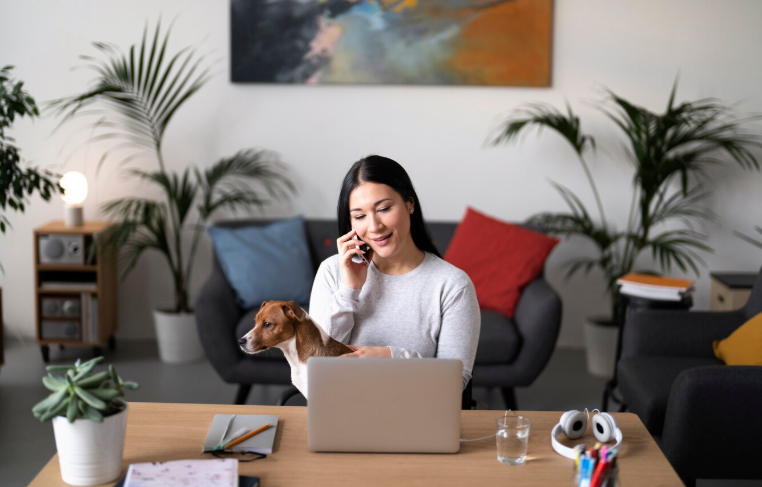Your digital workspace can either be your co-pilot or your biggest distraction. And if you’re ADHD or neurodivergent, you already know how fast a single notification, tab, or dopamine hit can derail hours of focus.
Whether you’re working from home, studying, or just trying to finish a task without going down another rabbit hole, this guide is for you. When you have a hard time focusing, productivity can feel like an uphill battle.
Let’s help you set up your space in a way that works with your brain and not against it.
30 day money back guarantee
No Credit Card Required Upfront
Create a Multi-Sensory Environment
Neurodivergent people often struggle with sensory issues, and some benefit from sensory input. It can help them feel grounded, reduce anxiety, or maintain alertness.
Modify according to what works for you and what doesn’t. You can try:
- Background white noise or ambient music
- A weighted blanket or footrest
- Soft lighting or colored LED strips with calm tones
- Fidget tools within reach
Just make your space stimulating enough not to be overwhelming.
Maintain Distraction-Free Digital Hygiene
Your online space is also a zone of endless distractions, unexpected interruptions, and decision fatigue. Instead of relying on willpower, build a system that does the work for you.
A lesser-known trick is to set up VPN router to create a more distraction-free and protected digital environment across all your devices.
VPNs are great for privacy, but they also function as a means for encrypting your connection. You can block access to entire categories of sites. And it applies to every connected device, including your laptop, phone, and tablet.
Declutter and Minimize Visual Distractions
A clean desk does indeed mean a clear mind, but some neurodivergent people’s brains prefer visual cues. You don’t have to keep your workspace bare, but focus on minimalism.
Organize your tools in a way that supports your workflow by:
- Using containers or color-coded zones for chargers, notes, and fidget tools
- Keeping only the devices you use within arm’s reach
- Making a place for items you tend to misplace or obsessively rearrange mid-task
The goal is to reduce as much friction as possible, not make it boring.
Break Up Screen Time
If you’re neurodivergent, screen time isn’t the enemy. It’s actually how you regulate, unwind, and sometimes even focus. But you can use it more intentionally.
Here’s how:
- Use site blockers or schedule breakers with reminders to look away or stretch (Focus Bear is great for blocking and breaks 😉)
- Set up a second monitor just for reference materials to reduce excessive tabs
- Keep a sticky note in your field of view with one simple message
And if your break turns into hours of doomscrolling, don’t beat yourself up. Start over and reboot gently.
Build a Comfortable and Cozy Arrangement
A stiff chair or a rough fabric can be more distracting and overwhelming than you might realize at first. Not only does your seating help reduce physical pain, but it also gives you peace of mind.
Make sure you have:
- Comfortable seating that you can sit on for hours
- A standing desk, if moving around or standing helps you focus better
- Headphones, preferably with noise canceling, for minimal distraction




